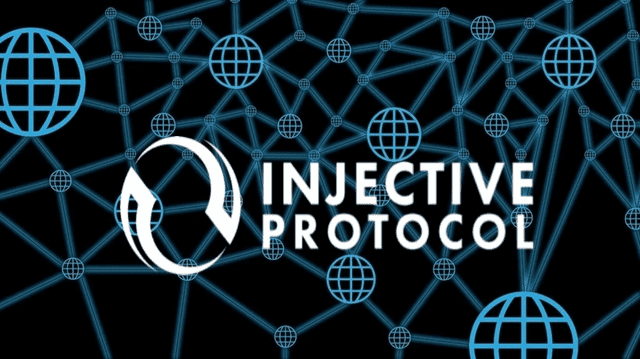“Blockchain isn’t just digital money—it’s the foundation for a fairer, faster, and more open internet for everyone.”
Key Concepts (Explained Simply)
1. Blocks & Chains
A block = a page in the notebook. It records a bunch of transactions.
A chain = all the pages stapled together in order.
Once a page is stapled, you can’t remove it. That makes cheating almost impossible.
2. Decentralization
Instead of one bossy bank keeping track of everything, everyone has a copy of the notebook. If someone tries to cheat, the others will immediately spot it.
3. Cryptography
Fancy math makes sure no one can rewrite history. Each block has a “digital fingerprint” linking it to the previous block. Change one thing, and the fingerprint breaks. Think of it like tamper-proof ink: try to erase it, and the whole page is ruined.
4. Consensus
Blockchain participants agree on what gets added to the notebook. It’s like a vote: if most people agree, the block gets added. This is what keeps the system honest without a central authority.
Why You Should Care
Imagine you want to send money to a friend across the country. With banks, it can take days, cost fees, and involve a bunch of middlemen. With blockchain? A few clicks, and it’s done—securely, transparently, and without anyone taking a cut.
Or picture this: you want to prove you own a piece of art or a digital collectible. Blockchain acts as a permanent certificate of ownership that can’t be faked.
Even if you never buy crypto, the tech behind it—decentralization, transparency, trustless systems—is slowly creeping into finance, supply chains, real estate, and more. Learning a little now means you won’t be left scratching your head later.
Blockchain and the Tech of the Future
If you think blockchain is just for sending crypto or showing off digital cats, think again. This tech is like the Swiss Army knife of the digital world—it’s creeping into everything, and fast.
1. Decentralized Finance (DeFi)
Banks may not like this, but the future is about cutting out middlemen. With DeFi, you can lend, borrow, and trade without ever talking to a human banker. Think of it as your own personal financial robot that never sleeps, doesn’t charge fees, and won’t judge your late-night impulse buys.
2. Smart Contracts
These are contracts that run themselves. You sign a deal, the blockchain enforces it automatically, and there’s no room for shady “oops, we lost your paperwork” moments. From insurance payouts to rental agreements, smart contracts could make bureaucracy look prehistoric.
3. NFTs and Digital Ownership
NFTs aren’t just digital art. They’re proof that you own something online—music, videos, even tickets. Imagine owning a concert ticket that can’t be forged, resold fraudulently, or lost in your email inbox. That’s blockchain stepping into real-world problems.
4. Supply Chains
Ever wondered if that coffee you’re sipping actually came from the farm it claims? Blockchain can track products from origin to cup. It’s like giving every shipment a permanent, un-hackable receipt. Fair trade, meet technology.
5. Web3 & the Decentralized Internet
The internet of the future won’t be ruled by mega-corporations alone. Web3 aims to give power back to the users. You’ll own your data, control your online identity, and even earn from the content you create. Basically, it’s your internet, not theirs.
6. Interoperability & Cross-Chain Magic
Future blockchains won’t exist in silos. Systems like Cosmos are working to make different chains “talk” to each other. Picture a city where every road, bridge, and tunnel connects perfectly—your digital assets can move seamlessly across platforms.
Why This Matters for You
The point is this: blockchain isn’t some fad for tech bros in hoodies. It’s laying the foundation for the next generation of money, contracts, and online life. Learning a little now—seeing how it works, understanding the lingo—means you’re not just watching the future roll by. You’re stepping onto it.
It’s like learning to drive before self-driving cars take over. Sure, the tech will eventually handle the steering wheel, but knowing how the car works? That’s how you stay in control.
The Vision: When Blockchain Takes Over the Internet
Here’s the exciting part: blockchain isn’t just reshaping money and contracts—it’s set to shake up the entire internet. Imagine a world where platforms like YouTube or Facebook aren’t controlled by a single corporation hoarding your data and deciding what you see. Instead, they’re decentralized, community-driven, and transparent.
Picture this: OmniFlex becomes the YouTube of the future. No shady algorithms secretly promoting some videos while burying others. No ad-heavy clutter that makes you question why you’re even scrolling. Just creators and audiences, connected directly, earning fairly, and controlling their own content. Your views actually matter, your money goes where it belongs, and the rules are fair for everyone—because the code enforces it.
Or imagine Passage, a social media platform that overtakes Facebook—but in virtual reality. Powered by the Unreal Engine, Passage turns your social feed into an immersive VR experience. Instead of scrolling through flat posts, you’re stepping into digital spaces with friends, attending live virtual events, exploring shared worlds, and interacting in real time. Blockchain ensures ownership of your digital avatar, virtual items, and even your content, while smart contracts enforce fair transactions and community rules. No central corporation decides what you can or can’t do—the platform is shaped by the users themselves.
This is what blockchain makes possible: a web where transparency, fairness, and decentralization aren’t buzzwords—they’re baked into the system. The platforms of the future won’t just be owned by a few mega-corporations—they’ll be owned, managed, and shaped by the communities that use them.
And here’s the kicker: you don’t need a seat at some Silicon Valley boardroom to be part of it. If you start learning today, experimenting with crypto, understanding DAO, and embracing blockchain-based apps, you’re not just a spectator—you’re part of building the internet of tomorrow.
The bottom line: the future isn’t coming—it’s already being coded. And when OmniFlex, Passage, or their successors rise, the people who understand the tech won’t just watch the future unfold—they’ll help steer it.
Got Questions? We’ve Got AnswersWe know diving into crypto can feel confusing — there’s a lot of information out there, and it’s easy to get lost. That’s why we put together this section: to answer the questions you’re probably wondering about, and to cut through the noise so you can learn faster and smarter.
Blockchain is like a digital notebook that everyone can see but nobody can erase. It records transactions, contracts, and ownership in a secure, permanent way—no banks or middlemen needed.
Crypto is digital money that lives on the blockchain. You control it directly, can send it anywhere instantly, and don’t need a bank to process it. It’s like cash—but faster, global, and programmable.
Smart contracts are self-executing agreements on the blockchain. They automatically enforce rules, so no one can cheat or lose paperwork. Think of it like a vending machine for contracts: put in your terms, and it delivers automatically.
While individual wallets or exchanges can be hacked, the blockchain itself is extremely secure. Its decentralized, encrypted design makes tampering almost impossible. Security is about how you manage your keys, not just the tech.
Blockchain is shaping the future of money, social networks, digital ownership, and more. Understanding it now means you won’t get left behind as apps, jobs, and digital services increasingly rely on this tech.

